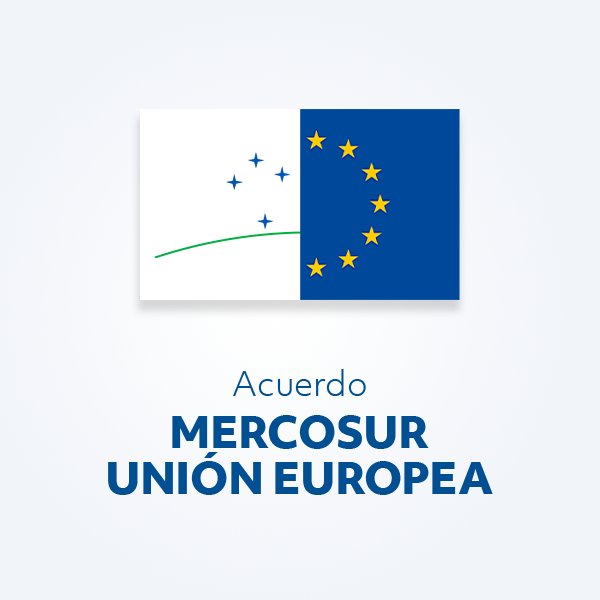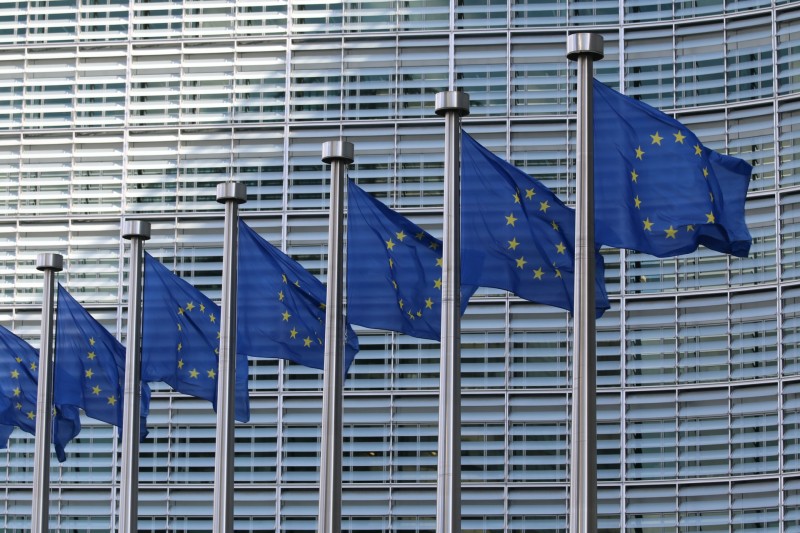The EU closing its greatest trade agreement with MERCOSUR
In today’s convulse period for the EU’s political scenario, with the neo-elected MEPs just installed and the discussions for the top-EU jobs just finished, the end of negotiations for EU’s greatest trade deal seemed not to have been on top of the news. However, on Friday, June the 28th, the EU produced a final draft for an Association Agreement with MERCOSUR - the most relevant southern American integration group - composed of Brazil, Argentina, Paraguay and Uruguay.

President Juncker defined it “an historical moment”; reaching a provisional draft after almost 20 years of negotiations. On the other side of the Atlantic, the Argentinian and Brazilian Presidents - Jair Bolsonaro and Mauricio Macri - responded with the same amount of enthusiasm. Jean-Claude Juncker defined it “a win-win deal”, indeed it represents the largest trade agreement the EU has ever concluded. It will save European companies over €4 billion in duties at the border, four times as much as the EU deal with Japan. On the South American countries’ side, it is the first utmost trade agreement, it opens up their market but also commits them to environmental protection rules, human and social rights, in a moment when global protectionism is on the rise and major powers such as the United States and China are stuck in a trade war.
Association Agreements are recently created tools by the EU to bind its counterparties to respect minimum democratic and political standards when concluding trade agreements. They are composed of a political and a commercial part, each one standing indivisibly from the other. In simple terms, this means that the Association Agreements ensure that the EU’s counterparties - as long as they want to trade with the EU - are bound to the respect for Human Rights, implementation of certain conventions and global issues as the recognition of the Paris Agreement on the protection of the environment.
Negotiations between the two regions had been lumbering along since 1999, due to the magnitude of the agreement and to the multiple changing political contexts. However, they picked up after Donald Trump was elected in 2016, and implemented a hard tariff policy on steel and aluminum imported from European nations. Simultaneously, the political shift toward conservative leaders in Argentina and Brazil paved the way for more market-friendly economic policies.
On the political side, the provisional agreement was found already in June 2018 in a round of negotiations in Montevideo. Nevertheless, trade negotiations seemed to be stuck due to issues related to Geographical Indications and the car-parts sector. When the window of opportunity seemed to have been lost, the high ambitions of the two blocks resulted in an unforeseen agreement. The EU’s chief negotiators - Sandra Gallina, currently Deputy Director General for Trade, and Edita Hrda, European External Action Service (EEAS) Managing Director for Americas - together with the Commissar for Trade Cecilia Malmström and the Head of Division for South America Veronique Lorenzo - who recently succeeded the well-known Ambassador Arianus Koetsenrijter - proved their ambitions and intent to close this agreement as one of the EU’s top priority for the first semester of 2019.
If ratified, the pact will complete the network of Association Agreements in the American continent, with the only exception of Venezuela. As a matter of fact, the agreement follows the ambition to make the EU the first region for trade agreements in the world. After the Comprehensive Economic and Trade Agreement with Canada (2016) and the Economic Partnership Agreement with Japan (2019), this new intent consolidates the position of the EU as the global leader in open and sustainable trade, as shown in the table below:
| Agreement | Population covered | Trade in services | Trade in services | Tariff savings for EU companies | Joint GDP |
|---|---|---|---|---|---|
| Canada | 550 million | €72 billion | €35 billion | €0.6 billion | €18 trillion |
| Japan | 639 million | €135 billion | €53 billion | €1 billion | €21 trillion |
| Mercosur | 773 million | €88 billion | €34 billion | > €4 billion | €19 trillion |
Source: http://trade.ec.europa.eu/doclib/press/index.cfm?id=2039
It will cover a population of 773 million citizens, strengthening the political and economic cooperation between EU and MERCOSUR and involving over $1 trillion in trade and services. It is a strong commitment in developing important economic reforms and modernisation undergoing in MERCOSUR countries. Moreover, it contains specific commitments on labour rights and environmental protection. On the other side, among the favourable sectors for the South American region, there is the Argentinian high quality beef, which will pass from a 20% to a 0% tariff. Besides that, the MERCOSUR will be able to benefit from a quote of 99.000 tons of beef with a 7.5% tariff.
Overall, the agreement aims at enhancing cooperation in areas as migration, digital economy, research and education, human rights, including the rights of indigenous people, corporate and social responsibility, environment protection, ocean governance, as well as fight against terrorism, money laundering and cybercrime. It will also offer increased possibilities for cooperation at multilateral level.
The political agreement was reached despite a last-minute hiccup between Mr. Bolsonaro and President Emmanuel Macron of France at the G20 in Japan (28th to the 29th of June). Mr. Macron warned that he would not sign a trade deal if Brazil pulled out of the Paris climate agreement. After threatening to cancel a bilateral meeting on Friday 28th with Mr. Macron, Mr. Bolsonaro sat down with the French leader and finally accepted to commit to the Paris Climate Agreement.
The official text will be available after legal revisions from both sides. Then, it will be submitted to the European Council, the European Parliament and the single MERCOSUR Member States for approval and ratification.
Francesco Carboni and Ester Davanzo
Sources:
http://ec.europa.eu/trade/policy/in-focus/eu-mercosur-association-agreement/
http://trade.ec.europa.eu/doclib/press/index.cfm?id=2040
“Ue-Mercosur, raggiunto l’accordo commerciale” by Antonella Andriuolo (Italian language); last update: 29/06/2019 https://it.euronews.com/2019/06/29/ue-mercosur-raggiunto-l-accordo-commerciale
Image credits:
Free trade agreement between EU and Mercosur by Wikipediow (CC BY-SA 4.0)



